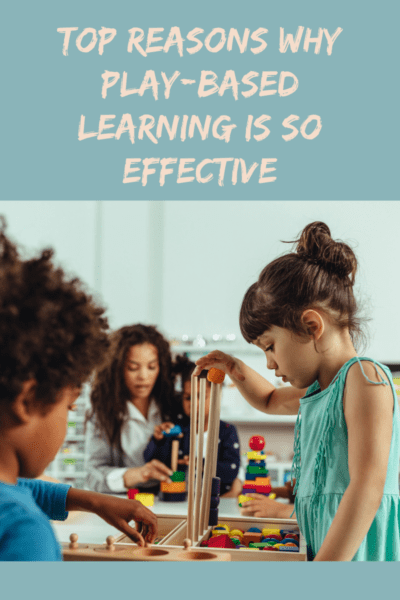Top Reasons Why Play-Based Learning Is So Effective

Everybody prefers to play than to work or learn. After all, playing is fun, learning doesn’t always have the same appeal. However, the two activities are not mutually exclusive. In fact, an increasing number of reputable early learning centers are recognizing the link between play and effective learning.
There have also been a number of studies to back up the benefits of learning through play. Let’s take a look at why this approach is so effective:
Repetitive Play Is Fun
Repetition is established as one of the best ways to learn anything, regardless of your age. However, repeating something over and over again is boring, making it hard to stay focused.
But, if you introduce the key phrases or information into a game, you can repeat it multiple times and still enjoy it. You won’t feel like you’re learning but you are.
A perfect example of this is improving memory skills by playing the repetition game. All the children sit in a circle and you create a theme. They have to say something to them but it must start with the letter you designate. They also have to repeat what the people before them have said. It’s fun, will certainly lead to amusing mistakes, and will boost memory skills.
Social Skills
Playing together means having to share opinions, adhere to rules, and be nice to others. These are all essential skills that need to be learned for success in later life. By doing this through play the skills are being established and it is considered fun. This will make children, and adults, more inclined to implement the skills in the future.
Play can even encourage children to take the initiative, another useful skill as they age.
Visual Recognition
It’s often easier to remember things when you have a visual image to connect with them. If you’re playing when learning it’s easy to conjure an image and then remember the salient fact. For example, a new word can be learned when playing a clown game. The clown is memorable and will form a connection in your brain. When you need to think of the word or fact, you simply picture the clown. Your brain will automatically do the rest.
Children Want To Learn
Learning is fun when it’s done through play. This encourages children to learn more things. After all, if you’re having fun you want to do it again, learning at the same time is a bonus.
The result is children want to lay more, giving them the opportunity to learn more. Knowledge is always a useful tool.
It’s Physical
Sitting in a classroom listening to a teacher invites your mind to wander. It’s simply hard to stay focused. But, if you’re playing you’re using your hands and this helps the connection to the game and the knowledge.
The physical connection is often overlooked but it is one of the strongest learning tools. Simply repeating the physical movement will jog the learning memory.









